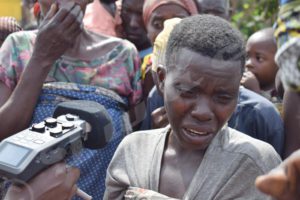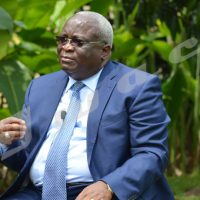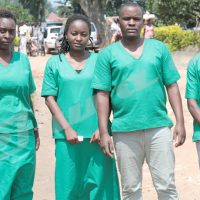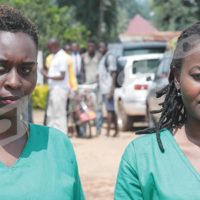
Some Kagaragara residents are still wandering the streets
“We have not received any assistance since the administration’s decision to evict us from our homes over two weeks ”, says Lazard Niyongabo, 76, a father of six children and former resident of Kagaragara area in Buringa zone of Gihanga Commune. He says they are sheltered by good Samaritans. “We were farmers but we now don’t have access to our crops except rice farmers. We have no means to rent a house”, he says. Another resident says they are still waiting for assistance. “Our children have dropped out of school to become beggars”, she says, in tears. Since they have been ejected from their homes, they are scattered in different areas. Some are still wandering the streets while others are sheltered by their relatives or charitable people living in Buringa zone of Gihanga Commune and Mutimbuzi commune of Bujumbura Province. None is still living in Kagaragara locality.
A mother of five children who has received a family at her home in Buringa zone says they will die of hunger if nothing is done. “I do not have sufficient food to feed them. The government should look for a place to house and assist them as they are Burundians”, she says. She also says some children are suffering from different diseases due to hunger. “They are suffering from diarrhea, vomiting and nausea and we do not have means to take them to hospital”, she says.
Nahimana, a mother of two children says they may spend two days without eating. “My children are not able to go to school because they are hungry”, she says.
Kagaragara residents include old people among others. They say they cannot work for their survival. “We were living thanks to our crops, but now, we don’t have access to them”, says an old man of the locality. He says the government notably the governor of that province should review the decision so that they can live in peace like other Burundians.
Léopold Ndayisaba, Administrator of Gihanga Commune says the administration and other humanitarian organizations are looking into how they can help these people. He, however, says all of them are not natives of the locality.
He says there are two groups. “The first group is made up of people coming from other localities while the second group one consists of people who occupied the area a long time ago. “We are pleading for the latter group so that they can get back their homes and belongings”, he says. Ndayisaba says the investigations are ongoing to identify them so that they should receive assistance as well. “Others should return to their native villages”, he says.


















 IWACU Open Data
IWACU Open Data

